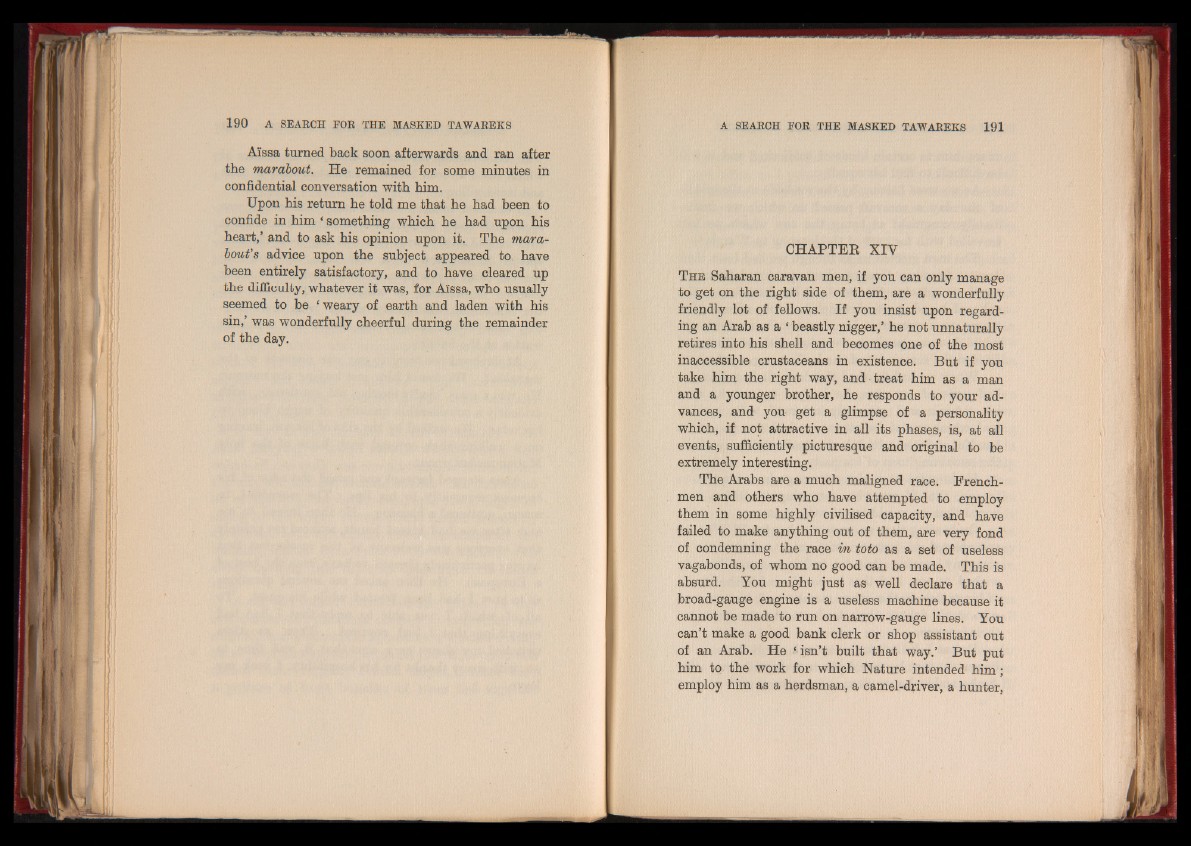
Aissa turned back soon afterwards and ran after
tbe marabout. He remained for some minutes in
confidential conversation with him.
Upon his return he told me that he had been to
confide in him ‘ something which he had upon his
heart,’ and to ask his opinion upon it. The marabout's
advice upon the subject appeared to have
been entirely satisfactory, and to have cleared up
the difficulty, whatever it was, for Aissa, who usually
seemed to be ‘weary of earth and laden with his
sin,’ was wonderfully cheerful during the remainder
of the day.
CHAPTER XIV
T h e Saharan caravan men, if you can only manage
to get on the right side of them, are a wonderfully
friendly lot of fellows. If you insist upon regarding
an Arab as a ‘ beastly nigger,’ he not unnaturally
retires into his shell and becomes one of the most
inaccessible crustaceans in existence. But if you
take him the right way, and treat him as a man
and a younger brother, he responds to your advances,
and you get a glimpse of a personality
which, if not attractive in all its phases, is, at all
events, sufficiently picturesque and original to be
extremely interesting.
The Arabs are a much maligned race. Frenchmen
and others who have attempted to employ
them in some highly civilised capacity, and have
failed to make anything out of them, are very fond
of condemning the race in toto as a set of useless
vagabonds, of whom no good can be made. This is
absurd. You might just as well declare that a
broad-gauge engine is a useless machine because it
cannot be made to run on narrow-gauge lines. You
can’t make a good bank clerk or shop assistant out
of an Arab. He ‘ isn’t built that way.’ But put
him to the work for which Nature intended him;
employ him as a herdsman, a camel-driver, a hunter,